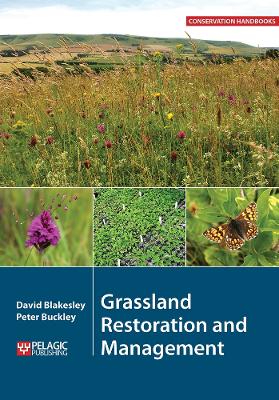Conservation Handbooks
1 total work
Following the destruction of 95% of meadows during the twentieth century, there is an urgent need to understand what little unspoiled habitat remains in order to plan the management and restoration of existing sites, as well as re-creating future grassland habitats. This book is a much-needed guide to grassland restoration and management.
Providing a thorough overview of recent research on grassland restoration and its implications for practical grassland restoration and management, it introduces grassland communities and the wildlife they support, including examples of species of conservation concern, and considers the management of semi-natural grassland habitats with particular emphasis on drier grassland habitats.
Chapters cover:
- Grassland character and communities
- Introduction to grassland wildlife
- Managing semi-natural grassland
- Grassland restoration – threats and challenges
- Opportunities in grassland restoration
- Plant material for grassland restoration
- Defining success in grassland restoration.
A variety of management techniques are examined, including soil amendment, cultivation, harvesting and maintenance in creating suitable conditions for the successful restoration of species-rich grasslands.
It is essential reading for conservationists, site owners or managers, practitioners, conservation organizations and students of ecological restoration with an interest in the creation of new grassland habitats, the restoration of semi-natural grassland, as well as the continuing management of semi-natural (unimproved) grassland communities.
